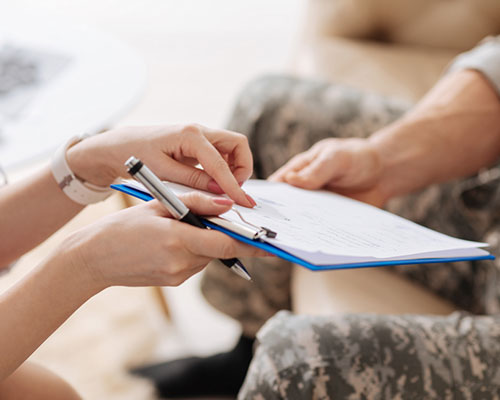If you are a US veteran with some form of disability, you may be wondering if you can collect both veteran disability benefits and Social Security disability benefits simultaneously. The answer to this is yes. In fact, about 18 percent of adult beneficiaries of Social Security are veterans. You can even apply for both VA disability and SSDI benefits at the same time, but first, you’ll want to know the differences between these two and how they interact with each other.
Various Disability Programs Concerning Veterans
When we talk about Social Security disability and veteran disability, we are talking about two different agencies of the government. The Social Security Administration (SSA) is the one that is in charge of Social Security programs like the Social Security Disability Insurance (SSDI). Meanwhile, the Department of Veterans Affairs (VA) oversees veteran disability benefits, also known as service-connected disability compensation.
In other words, SSDI and VA disability benefits are two completely separate programs. You will have to apply for each separately and anticipate two different application processes. The benefits that you receive from one are not directly connected with that from the other.
Differences Between SSDI And VA Disability
A primary difference between these two programs is the nature of disabilities they consider eligible. To qualify for veteran disability benefits, your disability must have been service-connected – that is, it started during your active duty. Under the SSDI, this is not an eligibility requirement.
However, the SSDI program also does not consider disability by degrees – you are either found disabled or not. This is in contrast to the VA’s rating system which compensates even partial degrees of disability. Under the VA program, you may receive benefits even when your compensable disability rating is only 10 percent, whereas in SSDI, you must be found to be completely unable to work profitably before you can collect benefits.
Because of this, the benefit amounts between the two programs also vary. Veteran disability benefits depend largely on the rating (percentage) of disability as well as the number of dependents. Check these tables on the VA website to see how much you may receive. On the other hand, SSDI benefits are based on your work earnings record prior to disability (much like Social Security retirement). SSDI recipients typically receive $700 to $1,700 per month.
Do SSDI And Veteran Disability Benefits Affect Each Other?
The short answer is no, military disability benefits should not affect your Social Security disability benefits, and vice versa.
In the past, receiving a high disability rating from the VA would improve your chances in your Social Security disability claim. VA disability ratings used to be a great factor in determining whether you were disabled under the eyes of the SSA. However, this stopped in 2017, when the SSA stated that they would no longer take into account whether you were VA-approved or not.
Likewise, being approved by the SSA does not carry much weight with the VA. Remember that the SSA does not look into whether your disability is service-connected or not, so a successful claim with this agency does not automatically mean good chances with the VA.
Although the SSA and the VA have two different and separate processes to determine your disability, they may likely use the same evidence in evaluating your claim. For instance, they will look into the same medical records surrounding your disability. In fact, the VA and the Department of Defense may share these records electronically with the SSA. The VA is likewise required to see your Social Security records in the process of assessing your disability.
In addition, your VA records may help you expedite your application with the SSA. This expedited process is typically granted to Wounded Warriors and vets with a disability rating of 100 percent.
Many veterans delay applying for Social Security disability, perhaps doubting their eligibility for both disability programs at once. You don’t have to wait before claiming the benefits you could be entitled to. If you have more questions or concerns, don’t hesitate to talk to us at the Gillette Law Group. We help disabled individuals in Virginia and are proud to serve veterans with our experienced legal guidance. Call us today at (855) 654-8130.

